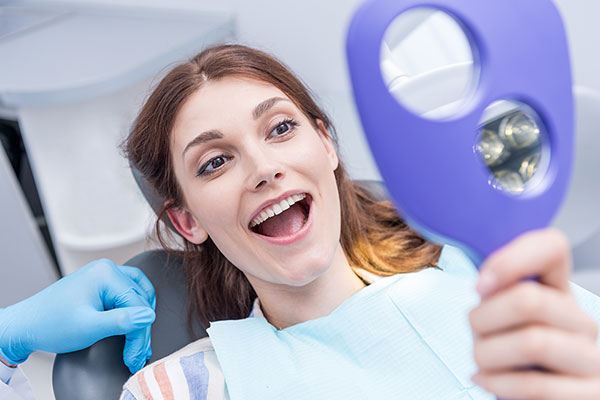What Happens During a Dental Cleaning?
We all love our teeth after a dental cleaning; they feel smooth, fresh and clean. But what is occurring during that dental cleaning?
The bacteria accumulating on your teeth, called plaque, sits around and eventually calcifies (or hardens) into tartar, called calculus. When calculus forms on your teeth surfaces, it creates the perfect place for more bacteria to adhere to. Oral bacteria cause an immune response in your gums, which results in inflammation. During your dental cleaning, all the plaque and calculus are removed from your teeth surfaces, above and below the gum line. A combination of an ultrasonic water jet and hand scalers are used to remove the bacteria, and stains are polished off with a polishing tool. If there is inflammation in your gums, you may experience some bleeding and tenderness during the cleaning, which will subside shortly after.
Mouth-Body Health
Did you know that your oral health is linked, in many ways, to your overall health? Good oral hygiene is linked to improved cardiovascular health, a lower risk of pneumonia, and a lower risk of premature birth during pregnancy. This is because the bacteria from your mouth can travel in your bloodstream to other parts of your body, increasing potential health risks. Of course, oral bacteria also lead to problems with your teeth, including cavities, gum disease and even tooth loss.
How Frequent Should You Have a Dental Cleaning?
It is recommended to see your dental hygienist for routine dental cleanings at least every six months. Your dental hygienist can clean areas that are difficult and sometimes impossible for you to reach with a toothbrush and floss at home. If you have current or past gum disease, recession, braces, or cavity-prone, it is recommended to have your dental cleaning more frequently, for instance, every 3-4 months. Talk with your dental hygienist about how often you should have your dental cleanings.
Only Floss the Teeth You Want to Keep!
So, what can you do at home to keep your teeth and gums healthy? It is important to brush at least twice a day, using either an electric or a soft manual toothbrush with fluoride toothpaste. It is also essential to floss your teeth at least once a day, making sure to access slightly underneath your gums.

